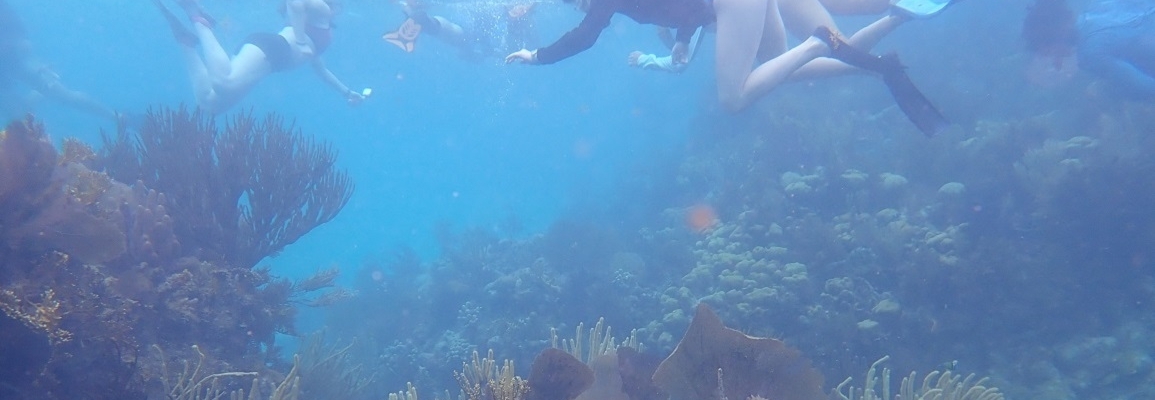Summer Internships and research opportunities are a great way to build your resume and try out potential career choices. The knowledge and skills you gain during an internship will make you more attractive to potential employers or graduate schools and could make the learning curve less steep once you start your career. Some companies even pre-select candidates for future job vacancies based on how they perform in internships.
Internships and research opportunities allow you the opportunity to make connections with others in your chosen field and learn how to communicate in a professional environment. You may even find a mentor in your field. A summer internship, whether paid or unpaid, can give you the foundation you'll need when you start your career or further your education.
Undergraduate Research Opportunities
Undergraduate students may be able to earn class credit for internships. The course options are BIO 3500 (1-6hrs) Independent Research or BIO 4501 (3hrs) Independent Research [CAP] or BIO 4900 (1-3hrs) Internship or BIO 4910 (3hrs) Capstone Internship in Biology [CAP]. Please see Biology Department Internship Guidelines for more information before registering for one of these courses.
Below are some links to organizations that employ student interns every year.
General
- State of North Carolina Internship Program
- UNC Summer Research Experience for Undergraduates
- University of Illinois Summer Research Opportunities Program
- University of Wisconsin SIGNALS
- Oak RIdge Institute for Science and Education
- National Institutes of Health
- Smithsonian Environmental Research Center (SERC)
Plant Science
- Blandy Experimental Farm, University of Virginia
- Cornell Summer Research Scholars Program
- Plant Genomics at Michigan State University
- Chicago Botanic Garden
Biomedical Sciences/Biotechnology
- Baylor College of Medicine SMART Program
- Mayo Clinic Summer Undergraduate Research Fellowship
- Johns Hopkins Summer Internship Program
- St. Jude's Children's Hospital Pediatric Oncology Education Program
- UNC School of Medicine and Dentistry MED Program
- University of Massachusetts Medical School (UMMS) Summer Undergraduate Research Program
- NIH Postbaccalaureate Research Education Program
Ecology and Environmental
- Mountain Lake Biological Station Summer Courses
- Smithsonian Environmental Research Center
- National Institute of Environmental Health Sciences
- Student Conservation Association
- University of Colorado Mountain Research Station
- Highlands Biological Station Summer Courses
Marine Biology
Graduate Research Opportunities
Research opportunities at the Center of Biodiversity
The Southern Appalachian region represents the center of biodiversity for vertebrates, invertebrates, and vascular and nonvascular plants in North America. The Department of Biology houses a diverse array of faculty working in environmental, evolutionary and organismal biology whose research uses these unique natural resources. Research fields include aquatic, microbial, insect, plant, cliff-face, landscape, behavioral, ecosystems, population and community ecology, conservation biology, air pollution, plant and animal systematics and evolution, aquatic ecotoxicology and plant insect interactions.
Future Conservatory for Biodiversity Education and Research
Research opportunities in Human Health, Biotechnology and Biomedicine
The Department of Biology also houses laboratory facilities that support faculty members working on research questions related to human health, biotechnology and the biomedical fields. Graduate students in the Cellular and Molecular Biology concentration have the opportunity to engage in laboratory research that addresses essential questions in the fields of microbiology, developmental biology, cancer biology, virology, genomics, endocrinology, physiology, lipid biology and neurobiology.
North Carolina Research Campus
Research opportunities in Secondary Education
Students receive training that integrates biological expertise with pedagogical research. Graduates are prepared for careers in school systems, state education departments, testing companies, museums, as well as advancement into education doctoral programs.
Externally funded research programs
Approximately $3 million in external funding in the last 5 years has been received from various state and federal agencies including National Science Foundation, National Institutes of Health, Environmental Protection Agency, Department of Energy, National Geographic Society, U.S. Fish and Wildlife Service and National Park Service.
Opportunities to present regionally and nationally
Almost all students present their research at regional and national conferences. Many students receive grants from the university and the scientific societies for travel to these conferences.
